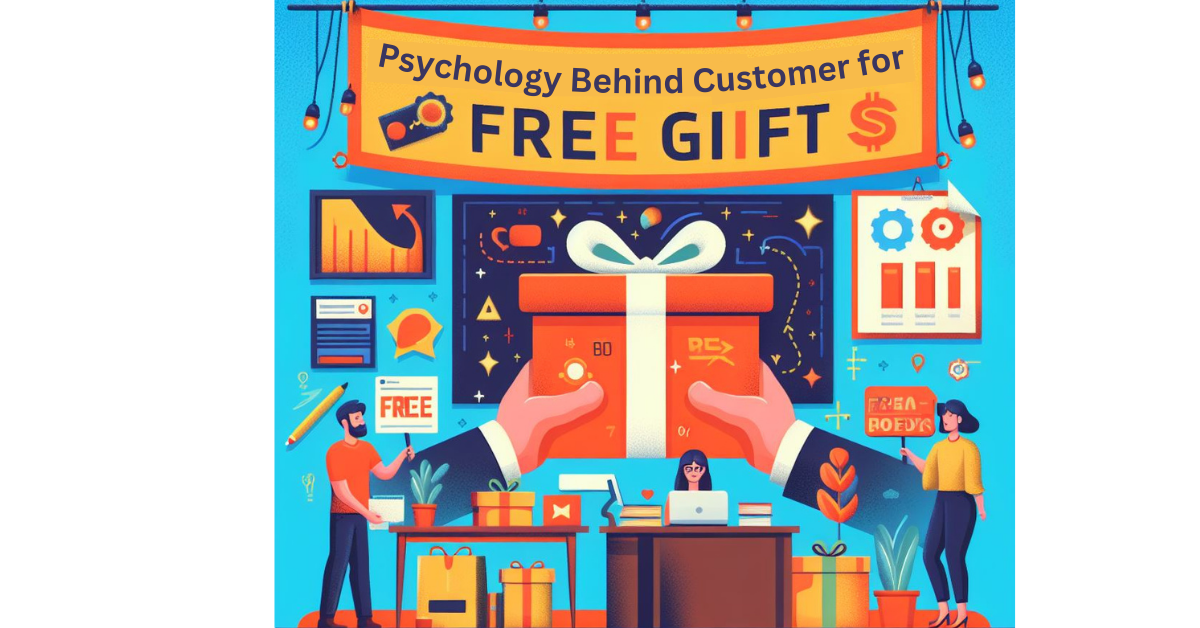The Psychology Behind Customer Demand for Free Gifts

In the realm of commerce, the allure of “free” holds a profound sway over consumers. From “buy one, get one free” promotions to complimentary samples, businesses often leverage the power of free gifts to attract and retain customers. But why do customers demand free gifts, and what psychological factors drive this demand? In this article, we delve into the intricate psychology behind why customers seek out free gifts and the implications for businesses navigating this phenomenon.
Perceived Value:
At the heart of the demand for free gifts lies the perception of value. Psychologically, humans are predisposed to seek out bargains and maximize gains. When customers receive a free gift with a purchase or as part of a promotion, they perceive it as an added bonus, increasing the overall value proposition of their transaction. Even if the free gift has a nominal monetary value, the perceived value far exceeds its actual cost in the minds of consumers, making the offer more enticing.
Reciprocity:
The principle of reciprocity is a powerful force in human interactions. When someone receives a gift or favor, they feel compelled to reciprocate in kind. Businesses capitalize on this innate tendency by offering free gifts as a gesture of goodwill, fostering a sense of obligation or indebtedness in customers. In turn, customers may be more inclined to make a purchase or remain loyal to the brand, driven by a subconscious desire to reciprocate the perceived generosity.
Sense of Entitlement:
In today’s consumer culture, where discounts, promotions, and freebies abound, customers may develop a sense of entitlement to free gifts. This entitlement stems from the expectation that businesses should reward their patronage with complimentary offerings, whether in the form of loyalty rewards, free samples, or promotional giveaways. As a result, customers may actively seek out brands that offer free gifts as a standard practice, viewing it as a non-negotiable aspect of their shopping experience.
Emotional Gratification:
Beyond the tangible benefits, receiving a free gift can evoke feelings of joy, excitement, and gratitude in customers. Psychologically, gifts trigger positive emotions associated with receiving something unexpected and desirable. Businesses can leverage this emotional gratification to create memorable experiences for customers, deepening their emotional connection to the brand. By associating positive emotions with the brand, businesses can foster long-term loyalty and advocacy among customers.
Social Proof and Status:
In a social context, the presence of free gifts can serve as a form of social proof, signaling the brand’s popularity, generosity, and desirability. Customers may perceive free gifts as symbols of status or belonging, especially if they are exclusive or limited edition. By offering free gifts, businesses can tap into customers’ desire for social validation and peer approval, driving engagement and brand loyalty within their social circles.
Risk Mitigation:
Free gifts can also function as a means of risk mitigation for customers. In uncertain or competitive markets, customers may be hesitant to make a purchase without assurance of quality or value. By offering a free gift as a “try before you buy” incentive, businesses reduce the perceived risk associated with the purchase, making it easier for customers to overcome objections and make a decision. This strategy can be particularly effective for introducing new products or entering new markets.
FOMO (Fear of Missing Out):
The fear of missing out is a powerful motivator that drives consumer behavior in today’s digital age. When customers see others receiving free gifts or taking advantage of promotional offers, they may experience FOMO and feel compelled to join in to avoid feeling left out. Businesses can capitalize on FOMO by creating a sense of urgency or scarcity around free gift promotions, encouraging customers to act quickly to claim their reward before it’s too late.
In conclusion, the demand for free gifts among customers is driven by a complex interplay of psychological factors, including perceived value, reciprocity, entitlement, emotional gratification, social proof, risk mitigation, and FOMO. Businesses that understand these underlying motivations can leverage free gifts strategically to attract and retain customers, foster loyalty, and differentiate themselves in a competitive marketplace. By offering thoughtful and relevant free gifts, businesses can create positive brand associations, deepen customer relationships, and ultimately drive long-term success.





